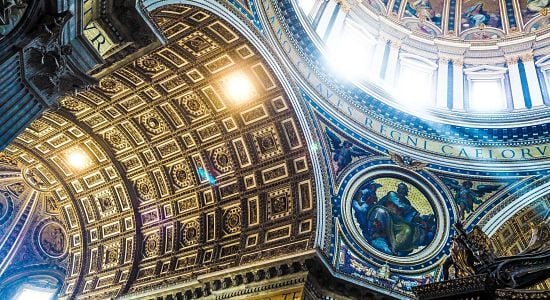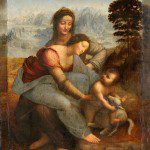 The same came for a witness, to bear witness of the Light, that all men through him might believe.
The same came for a witness, to bear witness of the Light, that all men through him might believe.
Plato warned John the Baptist (or at least people like he was) that John was in trouble, but John the Baptist was too illumined, too just, too alive to bother with warnings from the dead. He spoke the truth beautifully.
John had seen the True Light and any darkness made him angry. He hated tyrants, sin, and the devil, but mostly sin. This was a truly educated man in camel hair.
What he lacked in credentials, he made up for in wisdom.
Plato described true education as being dragged out of a cave and seeing the true light. Eyes dazzled, the newly illumined may see more poorly than before he left the cave. He certainly will not be as good at identifying the shadows as those who have stayed to earn credentials in Shadows on the Wall. As a result, the experts in the cave and the puppeteers who keep them there will mock the one who can see.
John the Baptist was not just mocked. He was executed for calling vice a vice when it happened in the palace. This was just, true, and beautifully consistent, but also fatal. The powerful love hearing sin condemned, especially the vices that afflict the power. Speak woe to the rulers and the rules change. The vices of the powerful are understandable, they deserve sympathy, and, after all, who are we to judge? John thought justice was no respecter of geography, zip code in our day, and spoke the truth.
This is good, even brave, but not that remarkable
There are a few brave women and men in every generation who defy power and curse the darkness. The rare man is the one who does this while bearing witness to the light. A man chained in a cave might recognize his chains, doubt his education, and curse the puppet masters who control his vision. He calls out the darkness, but has not even for a moment seen the true light. He might long for the light, dream of it, be willing to die for it, but he is still trapped staring at shadows. Such a man is a good man, a decent man, even a prophet, seeing more than his peers, John the Baptist was greater than this sort. John saw the True Light, recognized Light when it came from Light, and bore witness to the Light.
John hated darkness, because he loved the Light, not in the abstract, but from knowledge. A man might reject decadence out of a dream for romance, reckless courage in the face of bleak darkness, but John was the man without temptation, because he is in love. The illumined cannot see dark, the light shines out from them.
Nothing so pierces as the witness of a man who has seen and knows. The amazing fact of his testimony was that John turned people to the Light. If you witness to Light, then others need only turn, look, and see. Light is there if we are not blinded by others or close our own eyes.
Christmas is a season of lights. We are not (merely) Not in Darkness, but in the true light. The best man up to his time, John the Baptist, was needed to see the Light in the wilderness, but thanks to his witness and others like he was, we can turn, see, and also witness the light.
I shall have a chance to see the Light of God this Sunday, shining in a cup offered me by the hands of my pastor. Light comes from light and makes light: illumination is possible. John the Baptist, may I see as you saw, as you see now, and stand a witness.
If the dark resists, may I keep seeing the Light . . . beholding.
Christ is born!
Glorify him!
————————————
A Christmas series on John 1: 1-14 (Links will not be active until the piece is published. All active by January 5, 2019).
Part 1, 2, 3, 4, 5, 6, 7, 8, 9, 10, 11, 12, 13, 14.












